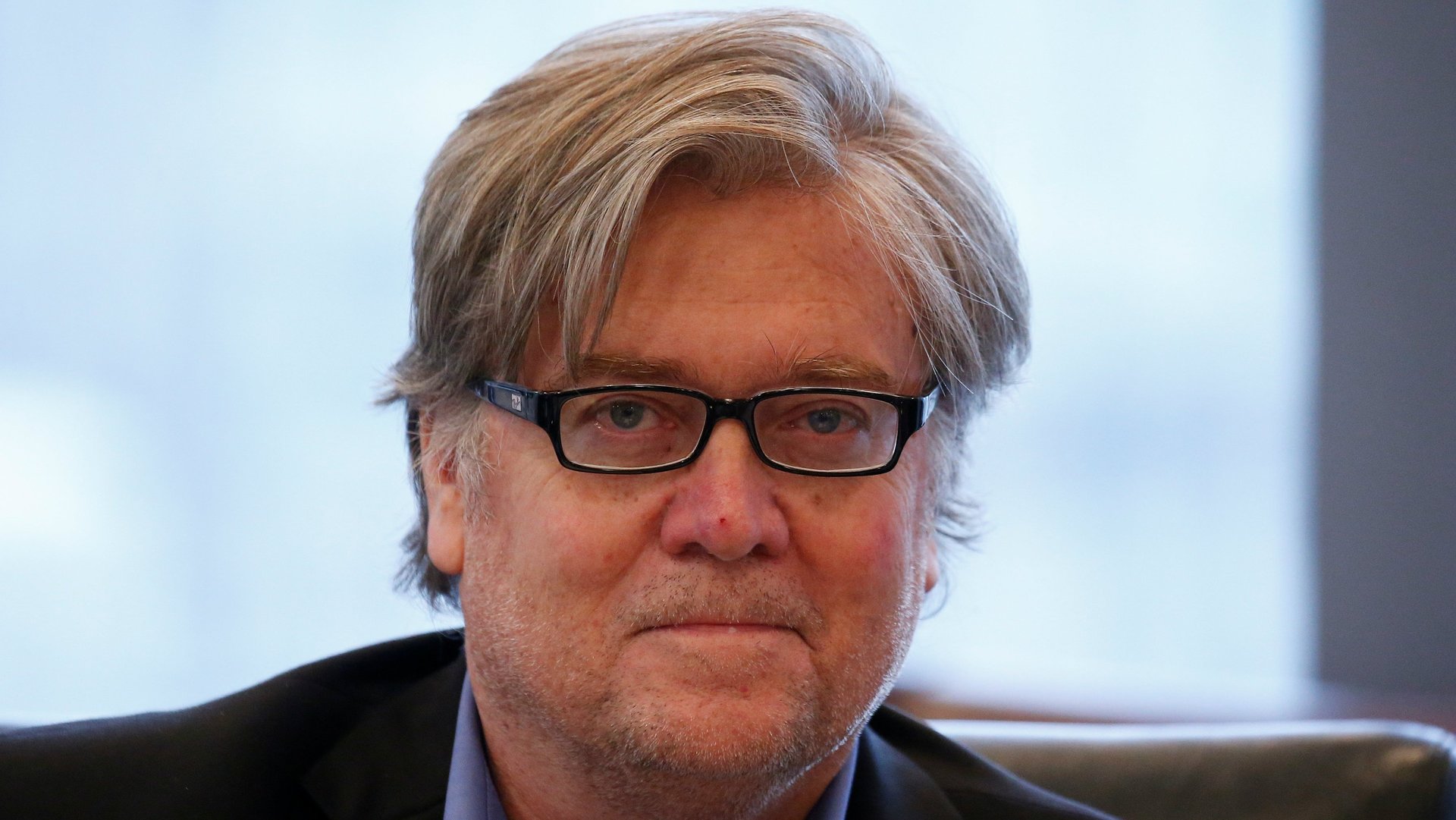Progressives and Steve Bannon have something surprising in common: hating Wall Street
Pop quiz—which major American political figure said the following:


Pop quiz—which major American political figure said the following:
- “The 2008 crisis… is really driven I believe by the greed, much of it driven by the greed of the investment banks.”
- “I think the bailouts in 2008 were wrong.”
- “[N]ot one criminal charge has ever been brought to any bank executive associated with 2008 crisis.”
- “The Republican Party “is really a collection of crony capitalists that feel that they have a different set of rules” and are “the reason that the United States’ financial situation is so dire.”
Nope, this isn’t a reheated Bernie Sanders screed. These are the words of Steve Bannon—you know, Donald Trump’s shadowy éminence grise, the guy the president-elect Donald Trump just tapped as his chief strategist, possibly reprising the role of Machiavellian whiz that helped win Trump the election. Bannon, who had run alt-right site Breitbart before becoming the Trump campaign CEO, delivered these remarks at a conference inside the Vatican in the summer of 2014, recently unearthed by BuzzFeed.
This is the gist of Bannon’s takedown of Wall Street: American capitalism, in its current form, is immoral. Investment bank greed caused the 2008 global financial crisis. The “outrageous” bank bailouts shunted the economic burden on middle-class taxpayers, hurting the economy and leaving many—particularly millennials—out of jobs. Shareholders, bank execs, and crony capitalists, meanwhile, made out like bandits. Nothing’s changed to fix it. Banks are still bent on turning hedge fund-style profits, ignoring their proper role in the economy: lending and investing in entrepreneurs. And the guilty parties “have never really been held accountable.” (Bannon worked at Goldman Sachs in the late 1980s, before its shift into trading practices that he was condemning.)
Markets seem to think the new Trump administration will coddle big banks; JPMorgan Chase shares are up almost 17% since Election Day (Nov. 8); those of Goldman Sachs have soared nearly 15%.
This isn’t so surprising; throughout the election, Trump consistently spared Wall Street from his scathing populist rants (though he has blamed Wall Street for causing “tremendous problems for us” and criticized the lax regulation of hedge funds). Trump vows to cut bank regulation, including the 2010 Dodd-Frank Act, and has said he favored the 2008 bank bailouts. His transition team is jam-packed with Wall Street “insiders” (pdf), according to Democratic senator Elizabeth Warren. Pretty much what you might expect from any old Republican on his way to the White House.
Could Bannon’s stances signal that the new administration might not be as cuddly with big banks as Trump’s past remarks might suggest?
It’s possible. Bannon’s views heavily influence Trump’s own opinions, as the Washington Post recently reported.
The chance that Trump might rein in Wall Street might cheer progressives—until they read the rest of Bannon’s Vatican lecture.
As he describes it, the financial shenanigans that led to the 2008 meltdown reflect a much larger “crisis both of capitalism but really of the underpinnings of the Judeo-Christian West in our beliefs.” What saved the world from atheism, fascism, and “a barbaric empire in the Far East” in the first half of the 20th century, creating Pax Americana and a rising middle class, was an “enlightened from of capitalism” rooted in the spiritual and moral foundations of Judeo-Christian beliefs.
Government cronyism and Western secularism have since eroded this “enlightened capitalism,” distributing wealth unfairly—fomenting populist uprisings across the globe. Once again, another global war against fascism—this time Islamic fascism—is brewing. The implications of Bannon’s worldview seem to be that to prevail over fascism this time, capitalism must be restored to its “Judeo-Christian West” moral core, breaking free from secularism and federal government control.